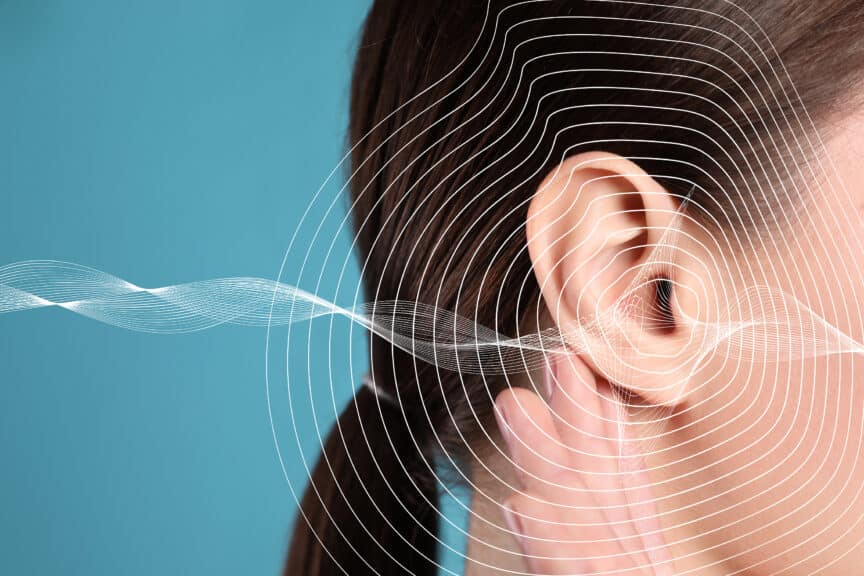Tinnitus, often described as a ringing in the ears, can be a perplexing and sometimes distressing condition. It’s a phenomenon where individuals hear sounds that aren’t present in their environment. This could range from buzzing, hissing, whistling, or other noises. While it can be mild or severe, understanding tinnitus and its implications is critical for maintaining good hearing health.
Understanding Tinnitus
Tinnitus is not a disease but rather a symptom of an underlying condition. It can be temporary or permanent, varying greatly from person to person. For some, it might be a minor annoyance. For others, it can significantly affect one’s daily life.
Several factors can lead to the development of tinnitus. Common causes include prolonged exposure to loud noises, ear infections, and age-related hearing loss. Additionally, earwax buildup, head or neck injuries, and certain medications might contribute to the experience of tinnitus. It is essential to pinpoint the exact cause to effectively manage the condition.
There are two main types of tinnitus: subjective and objective. Subjective tinnitus is the most common and is heard only by the affected individual. Objective tinnitus is rare and can be detected by a healthcare professional during an examination. The distinction between these types is important for diagnosis and treatment.
Identifying Symptoms
Recognizing the symptoms of tinnitus is the first step toward seeking appropriate care. Besides the characteristic ringing, other sounds might include buzzing, roaring, clicking, or hissing. The intensity and pitch can fluctuate. Sometimes, tinnitus is accompanied by hearing loss or a feeling of fullness in the ears. Noticing these symptoms early is crucial for managing the condition effectively.
Effects on Daily Life
Tinnitus can impact various aspects of life. Concentration problems, sleep disturbances, and increased stress levels are common complaints among those with tinnitus. These issues can lead to a decrease in one’s overall well-being and quality of life. Understanding the potential impact of tinnitus helps in addressing these challenges proactively.
Diagnosis and Medical Consultation
Consulting a hearing health professional is vital for anyone experiencing tinnitus. A thorough examination can help determine the cause and appropriate treatment plan. Hearing tests, blood tests, and imaging studies might be conducted. Accurately diagnosing the condition ensures the most effective treatment strategy.
Treatment and Management
While there is no universal cure for tinnitus, several treatment and management options are available. These include lifestyle changes, therapies, and medical treatments.
Sometimes, simple modifications make a significant difference. Reducing exposure to loud noises, avoiding caffeine and nicotine, and managing stress are beneficial. Regular exercise and maintaining a healthy diet also contribute positively to one’s overall well-being and might alleviate symptoms.
Hearing aids can be helpful, particularly for those with hearing loss. In some cases, medications might be prescribed to address underlying conditions or reduce the severity of symptoms. Emerging treatments, such as neuromodulation devices, are also showing promise.
Preventive Measures
Taking preventive steps can reduce the risk of developing tinnitus. These measures include using ear protection in noisy environments, maintaining good ear hygiene, and regular hearing check-ups. Being proactive about one’s hearing health helps mitigate potential issues before they escalate.
Conclusion
Tinnitus is a multifaceted condition that affects many individuals. While challenging, understanding its causes, symptoms, and management options leads to better outcomes. Early diagnosis, effective treatment, and preventive measures are key to improving your quality of life. With the right approach, the impact of tinnitus can be significantly reduced, allowing individuals to live fuller and more comfortable lives.

